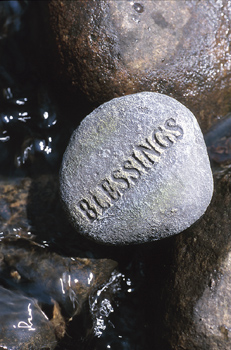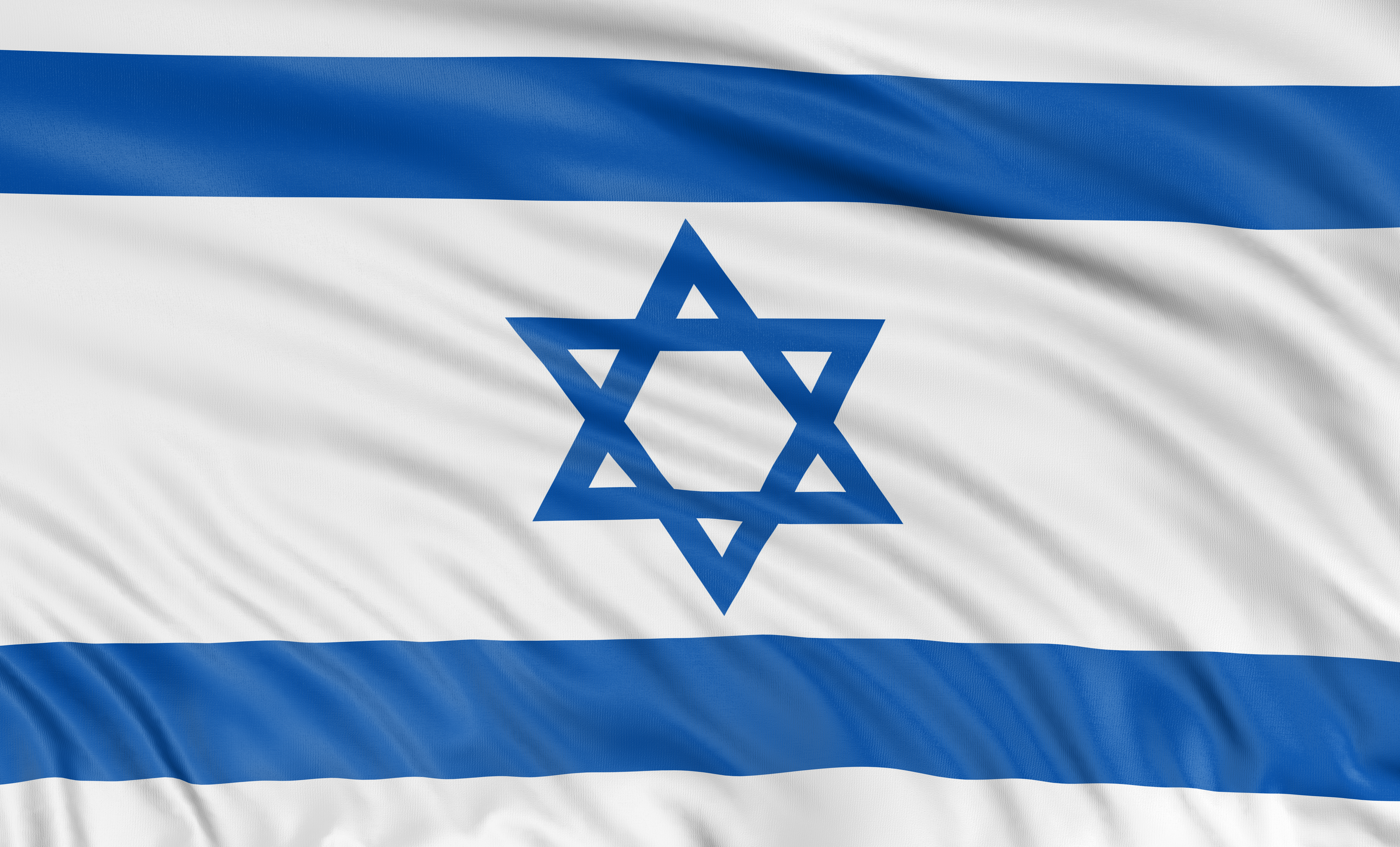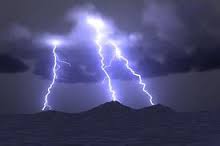Zechariah - Part Two: Chapters 3-6

"Visions in the night"
Part One finished with the reminder that God is in ultimate, total control; a great consolation to suffering saints on earth in any present distress.
The prophet Zechariah was privileged to be given eight visions in one night. The first three visions, considered in Part One, give the outward, visible, material side of the blessings. The remainder of the visions, before us in chapters 3-6, considers the deeper, inner, spiritual implications of the visions.
Chapter 3 - Vision 4 - Joshua the High Priest
On the basis of the initial cleansing of the nation by the blood of the Passover Lamb, the nation of Israel had been delivered out of the hands of Egypt and Pharaoh. They had a standing, a right relationship with their God, but their state of pollution and defilement that was the resultant effect of sin must also be dealt with, once and for all. Not their judicial standing before God, but their moral state, is the issue at stake here.
In verse 1 we have Joshua the High Priest standing before God. Satan, the adversary of the people of God, is, as ever, resisting God. In verse 2, God says, "Is this not a brand I have plucked out of the fire. I will use him to do what needs to be done." Joshua is not here standing as an individual representing himself. He is representing the nation as a whole. He is also a picture of the Messiah, Who will eventually fulfill the role Joshua symbolizes.
First, there is a negative need. Joshua’s filthy garments must be removed. Only God can do that. There is also a positive need for him to be clothed with a robe of righteousness. Only God can do that. What are the filthy garments? Self made clothes. Self-righteousness. Things that may well impress men but have no value at all in the sight of God. Man in his own natural state is not acceptable to God. However we try to mend it, wash it, embellish it, decorate it, it is still our own garment, what we are in ourselves. God had cleaned Joshua up, conferred upon him a moral state according to God’s own righteous standards. Joshua was now not only capable of officiating as High Priest, he was in a fit moral state to do so.
In verse 8 God directs our attention to Messiah, "My Servant, the Branch," the One with supreme intelligence, depicted by the seven eyes. He is the only sure foundation on which the blessing of Israel, and the government of the world, can rest. Only the Lord Jesus Christ, our Saviour and Lord, can fulfill that role. When He appears in power and great glory (Matthew 24:31), He will personally usher in the blessing, and rule the world in righteousness for the period of one thousand years that scripture specifies.
Verses 9 and 10 summarize the prophetic picture:
- Iniquity will be removed.
- God’s government will be set up at Jerusalem.
- Peace, plenty and prosperity will be established and maintained throughout the kingdom of our Lord Jesus Christ, the Prince of Peace.
Chapter 4 - Vision 5 - The golden candlestick Two olive trees
The candlestick, in verses 1-7, and the olive trees in verses 11-14, both indicate power for light, the bearing of light to the world, testimony given to the greatness of God, and the blessing that He makes available.
However, in verse 6 we read, "not by might, nor by power, but by My Spirit saith the Lord." Verse 7 tells us that, as a result of the work of the Spirit of God, what God brings in, ultimately, will not be to meet the legal requirements of the Law, but will be entirely on the line of grace. Israel will thus be reinstated as God’s light bearer to the world.
In verse 14 two anointed ones indicate the twin features which come to light in the Messiah. He is not only the King Who is going to reign. He is also the Priest Who is enabled to draw near to God. At the time, Zerubbabel the governor occupied the royal line; Joshua was High Priest. Ultimately, both features will be seen perfectly and fully in our Lord Jesus Christ.
The remnant is brought into a moral appreciation of things as they really are. They are thus and then able to witness to the condition of the nation as a whole. They are a picture of what the nation must ultimately come to if they are to be brought nationally into the blessing of God.
Chapter 5 - Vision 6 - Verses 1-4 The flying roll
There are two kinds of sin referred to in verse 3. First, "every one that stealeth." Sin against the neighbor. That is BAD. Secondly, "everyone that sweareth." Taking the Name of God in vain. Sin against God. That is MUCH WORSE. The nation of Israel are told that they need to be right with God and right with their neighbor, dealing with everything and everyone on a righteous basis, before the nation can be brought finally into blessing.
This will be the testimony that is carried as a flying roll, taken wherever it is needed, carried and given by those whose testimony and life is in line with the message they carry. The remnant at the time of the return from Babylon had this effect in a small way.
After the church has gone at the Rapture, when things get increasingly difficult for the nation of Israel, there will be a small minority who are true. They will bear a faithful testimony. That remnant, and later the whole nation of Israel, will be a moral force in the world, using and applying the word of God. This is symbolized in the flying roll.
Chapter 5:5-11 - Vision 7 - The ephah.
Before the events and conditions depicted in Visions 4, 5, and 6 can be brought in, there must be a purging out of the evil. Another measure is brought in, this time of capacity, carrying a talent of lead. Verse 8 explains this: "This is wickedness." Then, at the end of verse 10, "Whither do these bear the ephah?" The answer-"to build it a house in the land of Shinar." Consistently, wherever Shinar is mentioned in scripture, it is seen as a source of idolatry and rebellion against God.
Here, the nation was beginning to rejoice in being released from captivity in Babylon. The remnant had returned, started but not yet finished rebuilding the temple in Jerusalem. They are just as bad as Babylon. The idolatry into which they constantly fell has its root in Shinar, the origin and source of the evil of idolatry. There is no hope of blessing until this is recognized and confessed.
The promises are there. They will be fulfilled, but first the nation must be brought to national repentance because of the sins they have committed.
Chapter 6:1-8 - Vision 8 - The four chariots
God controls all things for the eventual blessing of His earthly people. He uses the agency of the four major Gentile monarchies. He ensures that the result of their activities, but not necessarily the details of the activities themselves, is according to His will. He holds them responsible to Himself for how they have treated His beloved people. He permits all this in order that His people might be brought into that spiritual and moral condition, whereby they will ultimately enjoy the blessing which He has purposed for them.
Chapter 6:9-15 - The Final Projection
The will of God shall be established and brought to full fruition by the Man "Whose Name shall be called the Branch" (i.e., Jesus, our Lord, filled out in the detail of The Gospel of Luke). He is the only Man Who can bring in and maintain a system of national and then universal blessing on behalf of God.
Note the emphasis. He shall grow up and build the temple of the Lord. The counsel of peace shall be between them both (Jehovah and Messiah are "fellows," equal in Person; vv. 12-13). He bearing His Cross, went forth (John 19:17). He bears their names on His shoulder and on His breast (Exodus 25:12, 29). He shall ultimately bear the glory (v. 13), fit to do so because He bore their sins (Isaiah 53:5). He shall sit upon the throne, ruling as King, and be a Priest upon His throne (v. 13). He shall regulate things rightly on God’s behalf. In verse 14 we have a little picture of the twelve tribes in the world to come, enjoying the fulfillment of all the promises that have been made to them, when Messiah comes in power and great glory. In verse 15, we see "them that are afar off." That is, when Messiah is given His right place, when the nation of Israel are in their right setting, then, and only then, will the Gentile nations themselves be blessed in a proper way.
Summary
Man’s sins, disturbing the balance that there is in God’s fair creation, not only disturbs the imbalance in the produce, but also the administration of the harvest. But when Messiah takes control, and the blessing is distributed via the nation of Israel, supply and demand will be in perfect balance. The blessing will not be restricted to the pleasant land of Israel, but will be seen and enjoyed throughout the length and breadth of the earth, because everything will be in proper perspective, because the true King and Priest will be upon His throne.





